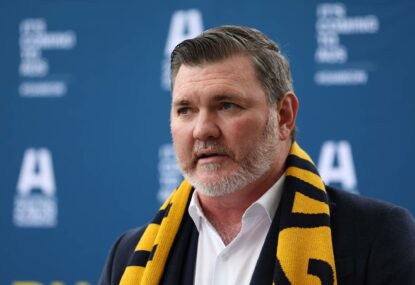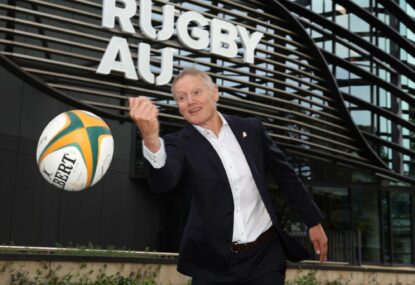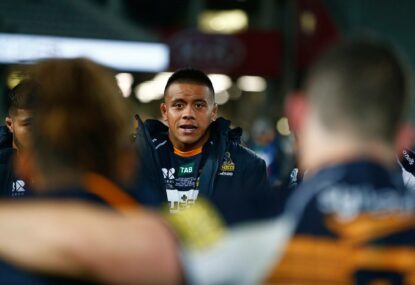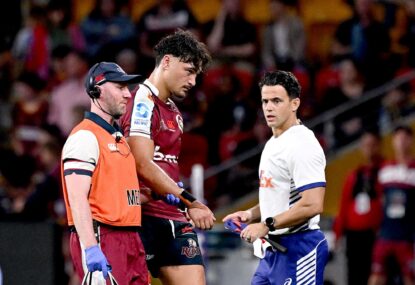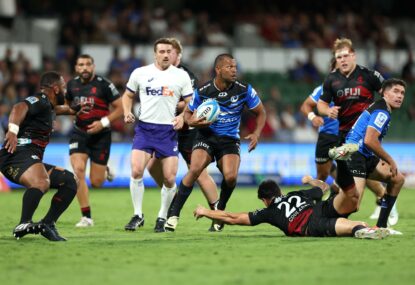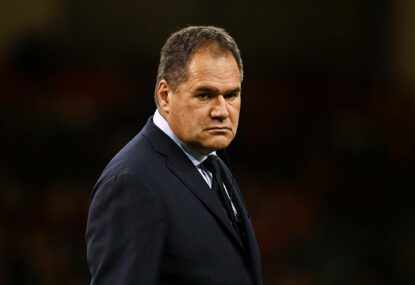This is the third installment in my series dissecting Australian rugby’s performance since France 2007.
This article is the second half of my discussion about the John O’Neill led Australian Rugby Union (ARU) and their performance on the road to Rugby World Cup New Zealand 2011.
1. Expansion of Super Rugby.
As a fellow (and wiser) Roarer commented recently, no matter what you say about O’Neill, as a former banker you have to have faith in his ability to balance the ARU’s budget. For this reason alone, an argument can be mounted that the constant belt tightening of the past four years has been necessary.
Therefore, it was a pleasant surprise when it was agreed that Super Rugby would be expanded. It was an even more pleasurable process when Melbourne won the franchise rights in 2009. But has the expansion and consequential restructuring been a success? The answer, as far as Australian rugby is concerned, is a resounding yes.
To emphasis the point, a brief summary of some of the highlights in 2011 for Australian Super Rugby:
– Highest attendance for provincial Australian rugby – Super final: Queensland Reds vs Crusaders (52,113).
– Most watched Foxtel sporting event – Super Rugby final: Queensland Reds vs Crusaders (average of 518,000, high of 691,000).
– Australian Super Rugby TV ratings increase of 30 percent.
– Queensland Reds average over 32,000 per game (inclusive of finals).
– Melbourne Rebels average over 17,000 in first year of existence.
Admittedly, a lot of that is to do with the Queensland Reds success, however the TV viewership alone is enough to demonstrate that Australian rugby fans approve wholeheartedly with the new structure.
And what’s not to like about it? More derbies, more games on at a reasonable hour, more of our favourite Wallabies playing at a stadium we can attend.
On a personal level (and I am sure many will agree), I have also thoroughly enjoyed watching the northerners have a run around. Whilst I have no desire for Super Rugby to become flooded with foreigners, hopefully we can find a suitable balance which means players like Cipriani et al will continue to ply their trade in the south at some stage during their careers.
2. Player management and retention.
Unfortunately, whilst the ARU has delivered on Super Rugby, they have failed in their management of the flagship national team. In my proceeding article, I discussed the disappearance of the Australia A program and the ARC, two projects which I considered vital for the production of Wallabies.
Whilst developing talent should always be the priority, retaining talent is almost as vital and the ARU has let down Aussie fans over the last four years.
A. Dan Vickerman.
Dan Vickerman’s return to Australian rugby has highlighted the ARU’s failure to manage its talent pool effectively. Vickerman left at the end of the 2008 season to pursue higher education opportunities in the UK.
There is nothing wrong with this in of itself. Rather, the issue is why Vickerman and the ARU didn’t co-ordinate the timing better.
Vickerman’s recently completed course took three years. Why didn’t he commence this three year course as soon as the World Cup was completed? I appreciate that he was playing in the World Cup when semester started, but surely a better accommodation would have been found than having the bloke return to Australian rugby for one Super game in a World Cup year?
Whilst I am not privy to the decision making process or Vickerman’s personal reasons, it does beg the question why he was on a contract that only extended for one year post-World Cup. He was a player at the peak of his powers, surely it was more logical to either contract him only to the end of the World Cup or put in place a long term contract.
Finally, but in some ways most importantly, what example has been set by the handling of his return? A situation has now been established whereby a player can leave following a World Cup and return for one Super game, before expecting to be selected for the Wallabies.
What about those players who have put in for the last four years at Super Rugby level? It is a dangerous precedent that could see a situation whereby our established starts leave for huge swaths of the years between World Cups.
B. Rocky Elsom.
The Australian captain is a contentious character amongst Wallaby fans. Rocky Elsom’s most successful run of form took place during an overseas sojourn from mid-2008 until his “triumphant” return for the 2009 end of year tour.
I say triumphant, because there was almost universal agreement that he had to be the next Australian captain (yours truly included), despite the fact that most Wallaby fans would not have seen Elsom play a single game for Leinster.
But the entire situation was a farce. Elsom was released on compassionate grounds, yet nearly did not return. Since his return, on a significant contract no doubt, he has managed to skip an entire Super season and failed to commit to Australian rugby beyond the World Cup.
That’s right, the Australian captain is uncommitted for next year.
Furthermore, a string of injuries (say what you will) and some indifferent form when he has played, has left many Wallaby fans frustrated and critical.
Whilst stability is always preferable to instability, questions have to be asked about what sort of leadership credentials Elsom actual has when compared to the Super Rugby winning leadership team of James Horwill and Will Genia.
C. The rest.
Unfortunately, it is probably an inevitability that the ARU will be unable to hold onto our talent now and into the future. Players like Hugh McMeniman openly admitted before they left that there was nothing wrong with the ARU’s offer – he simply couldn’t refuse the money being thrown at him from Japan.
But the issue runs deeper than this. George Smith, a great servant of Australian rugby, departed our shores at the end of the 2010 Super Rugby season. He was twenty-nine.
Whilst no one can begrudge him the travel or the money, it does mean that our up-and-comers miss out on developing alongside and against the best.
Let’s not even discuss what will happen if David Pocock breaks down during the World Cup…





























































































